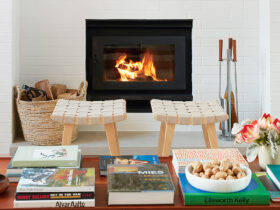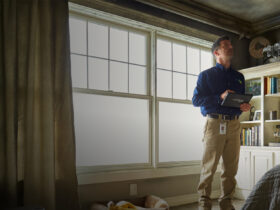The average cost of an insurance claim for a frozen or burst pipe is $10,900. Many of these claims are totally avoidable with a bit of home maintenance awareness and prep. You, too, can avoid an expensive plumbing bill by doing a bit of prep work before the winter temperatures hit.
Learn about the five most common winter pipe issues and avoid having to call a plumber this winter season.
1. Frozen Exterior Pipes
The most common problem homeowners face is frozen exterior pies. These are the waterlines outside of your home. You can avoid a burst exterior pipe by protecting them from freezing.
Drain the water in them and disconnect your hoses. Turn off the valve that supplies water to your spigots. If you have a hose bib valve, leave it open and let the water drain.
Leave the valve open to relieve the pressure should freezing happen. Wrap insulation around the exposed pipes to help the pipes retain warmth and prevent freezing.
2. Clogged Kitchen Drain
The holidays will put an extra strain on your kitchen plumbing. A greater volume of food waste gets put through the garbage disposal, creating a greater risk of clogging. This will leave you needing to find a plumber.
To prevent clogs, avoid putting cooking oil, fats, and coffee grounds down your sink. These can all create buildup and cause the pipes to clog. Always run the water during and after the use of the garbage disposal.
3. Failing Water Heater
Your water heater is another part of your plumbing that will experience heavier loads during the winter. The colder temperatures cause people to turn up the heat, and guests will create greater demand.
Call the best plumber in your area to perform regular maintenance and drain your heater annually. If you have an older model, add a water heater blanket to prevent energy loss.
4. Damaged Drains
The drains on your home direct moisture away from your home. They are vulnerable to cracking from contraction and expansion during temperature changes. If your drains don’t effectively direct water away from the home, then you risk the water freezing in your home and causing even more damage.
Consider replacing your plastic drains with metal ones. Galvanized steel is durable and corrosion-resistant. It’s also stronger than plastic, making it better at supporting the weight of ice buildup.
5. Frozen Septic Lines and Tank
If you have a septic tank that isn’t well protected, then you risk it freezing during the coldest parts of winter. If this happens, it can cause your entire home’s drainage system to stop working, creating backups in the home. You’ll then need to call for plumbing services to fix the problem.
To prevent this smelly problem from happening, check for soil erosion around your septic system. Add more when needed to insulate the lines better. Don’t pack it down tight, as this can cause it to freeze faster.
You can also have the tank pumped before winter to prevent it from freezing. If the temperatures are especially cold, lay straw over the septic tank and system for extra insulation.
Call a Plumber Today
If you are concerned about your home’s plumbing and pipes, then call a plumber. They can help you evaluate your home’s pipes and prepare your home for winter. Have them check your home’s exterior pipes, water heater, septic system, and drains.
For more helpful advice on preparing your home for winter, be sure to read our other home-focused articles.








